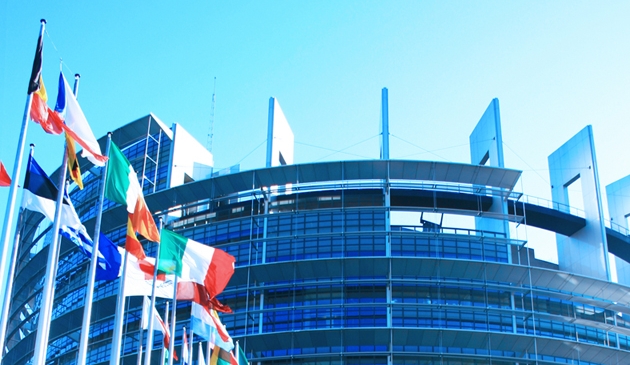
European political parties are the key to EU legitimacy
The European Parliament sometimes exasperates its friends. MEPs have made the wrong calls on some policy questions and they delayed reforming their malfunctioning pay and allowances system until the creation of a harmonised salary scheme in 2009. MEPs can also come across as excessively sensitive about perceived slights to the Parliament's prestige - a hangover from the days when it had no influence. And the body has been 'gifted' by EU member-states with three separate locations and 23 working languages, which complicates significantly the way its politicians do their work and communicate to their electorates.
Yet, as Anand Menon and John Peet concede in their CER essay from December 2010 'Beyond the European Parliament: Rethinking the EU's democratic legitimacy', the Parliament has become increasingly powerful. And if - as in that essay - its actions are assessed more critically than before, it is because the work of MEPs is having an ever greater impact on everyday life.
Thankfully, the EP has risen to the challenge by becoming a more sophisticated legislature. Some of the most important EU laws in recent times, such as the services directive, the registration of chemicals (REACH) regulation, pan-European action to tackle climate change and parts of a new financial services package, have been the result of careful compromises worked out in the Parliament rather than between national ministers or their ambassadors to the EU.
The Parliament's demand for a 5.9 per cent rise in the 2011 EU budget can be criticised as misreading the public mood at a time of widespread austerity. But would be EU reformers would do well to consider that the EP is a key ally in efforts to switch spending away from agricultural price support to structural funds and research. And in its showdown with the Santer Commission in 1999, the EP forced the pace of reforms to crack down on corruption and financial mis-management.
Through the careful use of its powers to 'elect' the Commission President and the incoming Commission, the EP has subjected the EU's executive to public scrutiny. The hearings have weeded out unsuitable candidates on several occasions, and the Commission has become more responsive to both parliamentary and public concerns.
On occasion the EP has expressed the concerns of Europeans on broader issues, like human rights, media pluralism and finding the right balance between counter-terrorist measures and upholding civil liberties. Peet and Menon recount the EP's giddy reaction to the visit of US Vice-President Joe Biden. But they omit to mention that Biden came to woo MEPs over an EU-US security agreement which the Parliament had rejected as unbalanced. On that occasion, MEPs increased the EU’s leverage by insisting on compromises which the original European negotiators were unable to achieve.
So the EP carries out its duties as a parliamentary body. It legislates, it is a budgetary authority, it holds the executive to account and can act as the organised expression of genuine public concerns. But on one central point Menon and Peet are right: all of this and its increasing role have not stemmed public apathy or created a feeling that Europe's citizens are in the driving seat. Each election has seen an ever more powerful Parliament elected by a smaller percentage of voters. European elections fail to interest voters because they do not address European issues, national parties fight them as if they are purely national affairs and ideological choices are muted. If national leaders do not take these elections seriously then why should the voters?
Part of the answer is to strengthen and reform 'European political parties'. These are the ten transnational political alliances in Europe to which most mainstream national parties are affiliated. At the moment these parties are essentially clearing houses for organising nominations to top jobs after the European elections. In general they do not have members; decisions are made by consensus between party leaders and bureaucrats; their programmes are insipid appeals to the lowest common denominator; they do not campaign and they do not talk to voters about why European issues matter.
This is starting to change. The European parties' programmes for the 2009 elections had more substance. Furthermore, most of them are embarking on internal reforms, opening up to members of affiliated national parties, electing delegates to regional congresses, and developing European policies with the help of in-house think-tanks. Some are even starting to launch issue-based campaigns between elections.
Most importantly, the main European parties are likely to put forward a candidate for the presidency of the Commission at the next election. If these personalities emerge from a primaries system, as is mooted in some of the parties, and then engage in a cross-continent debate with the other candidates, there is a chance that the 2014 elections will be the first to have some European content.
This approach seems more promising than some of the ideas in the Menon-Peet essay. The authors believe that democratic legitimacy can be strengthened through the national parliaments - a throwback to the pre-1979 era. National parliaments have their role, mainly by holding national ministers to account for their actions in Brussels. But the creation of some kind of 'senate' of national parliaments with formal decision-making powers in EU matters has been consistently rejected by national parliaments themselves. And, as Menon and Peet point out, the last thing Europeans seem to want now are more institutions.
Europe has a parliament, directly elected, and now with the proper set of powers to do its job. It is already providing some democratic accountability for EU decisions. The task of building public support is difficult but not impossible. More effective European political parties, campaigning on European issues and projecting European personalities would help to get us there. This should be the priority for those who wish to see greater democratic legitimacy and a stronger EU.
Sir Julian Priestley was Secretary General of the European Parliament 1997-2007.
